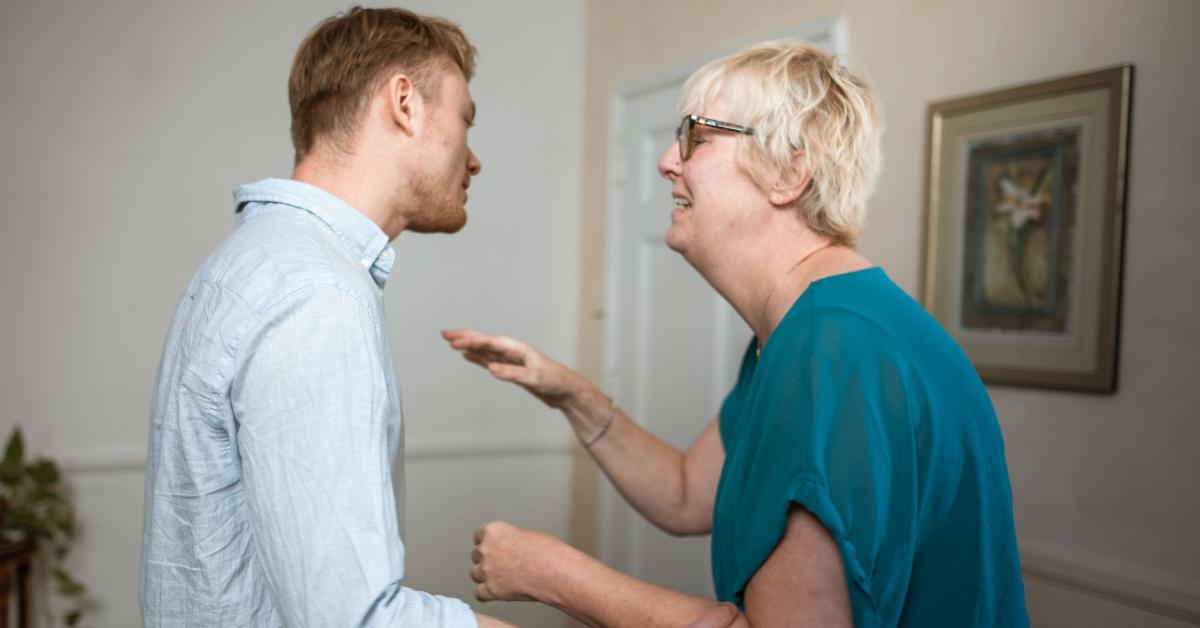How to Recognize and Act on Signs of Financial Abuse
The signs of financial abuse aren’t readily apparent to people outside of a relationship or even those who are victims. Here are the signs.
April 10 2023, Published 2:55 p.m. ET

The signs of physical domestic abuse can be easy to spot at times. Bruises, black eyes, or broken bones may cause concern, especially if they occur frequently.
But another form of domestic abuse, called financial abuse, isn’t as easy to identify. The signs of financial abuse aren’t readily apparent to people outside of a relationship or even those who are victims.
What is financial abuse?
Financial abuse is when one person tries to control another by restricting their access to money and assets and dictating how and when they can spend money. Financial abusers can be spouses, partners, or even relatives.

In a marriage or partnership, financial abuse can start as innocently as your spouse or partner suggesting you stop working or let them take over paying the bills. However, if the situation progresses to a point where you feel like you have to ask permission to buy something or spend money, that's a cause for concern.
Financial abuse often goes hand-in-hand with physical domestic abuse. According to a study by the Center for Financial Security at the University of Wisconsin Madison, controlling a woman’s ability to acquire, use, and maintain economic resources is as common as physical and psychological abuse in battering relationships. The study found that 99 percent of the domestic violence survivors surveyed had experienced financial abuse.
Victims of financial abuse may stay in abusive relationships because they're insecure about finances or have been financially drained by their abuser. Almost three in four domestic violence survivors said they stayed with or returned to an abusive partner due to financial problems, reports a study by the Institute for Women’s Policy Research.
Financial abuse may also occur among family members. For example, if the adult child of an older person pressures them for access to their bank accounts or credit cards. The abuser may say they need access to the accounts to help their elder parent pay their bills, but then they use the money for their own purposes.

How do I recognize the signs of financial abuse?
Recognizing the signs of financial abuse can be difficult, even for the victim. A financial abuser’s control tactics may appear more like they're being helpful rather than controlling.
These are warning signs that you may be a victim of financial abuse. Your partner, spouse, or family member:
Discourages you from working or furthering your career
Restricts how much you can spend
Refuses to give you access to financial accounts, both your own and joint accounts
Adds their name to your accounts without your consent
Sabotages your career or takes other actions to prevent you from working
Doesn’t consult you when making significant financial decisions that affect you
Get angry over financial issues
Maxes out your credit cards and spends your money without your knowledge
Pressures you to change your will or pension payments
Here's how to protect yourself from financial abuse.
The longer you remain in a financially abusive relationship, the harder it may be to get out. Financial abuse can destroy your confidence in money. Worse yet, a financial abuser could drain your accounts or ruin your credit to the point that making ends meet on your own is hard.
If you are planning to leave a financial abuser, take specific security measures like freezing or canceling your bank and credit card accounts and changing the access codes and PIN codes. Request a copy of your credit report to see what damage may have been done.
If possible, start preparing for your exit from the relationship before you actually leave. Try to stash away as much money as possible in a new account without your abuser knowing.
You can also get more information on the steps you need to take to get out of a financially abusive relationship by contacting the National Domestic Violence Hotline at (800) 799-7233.
